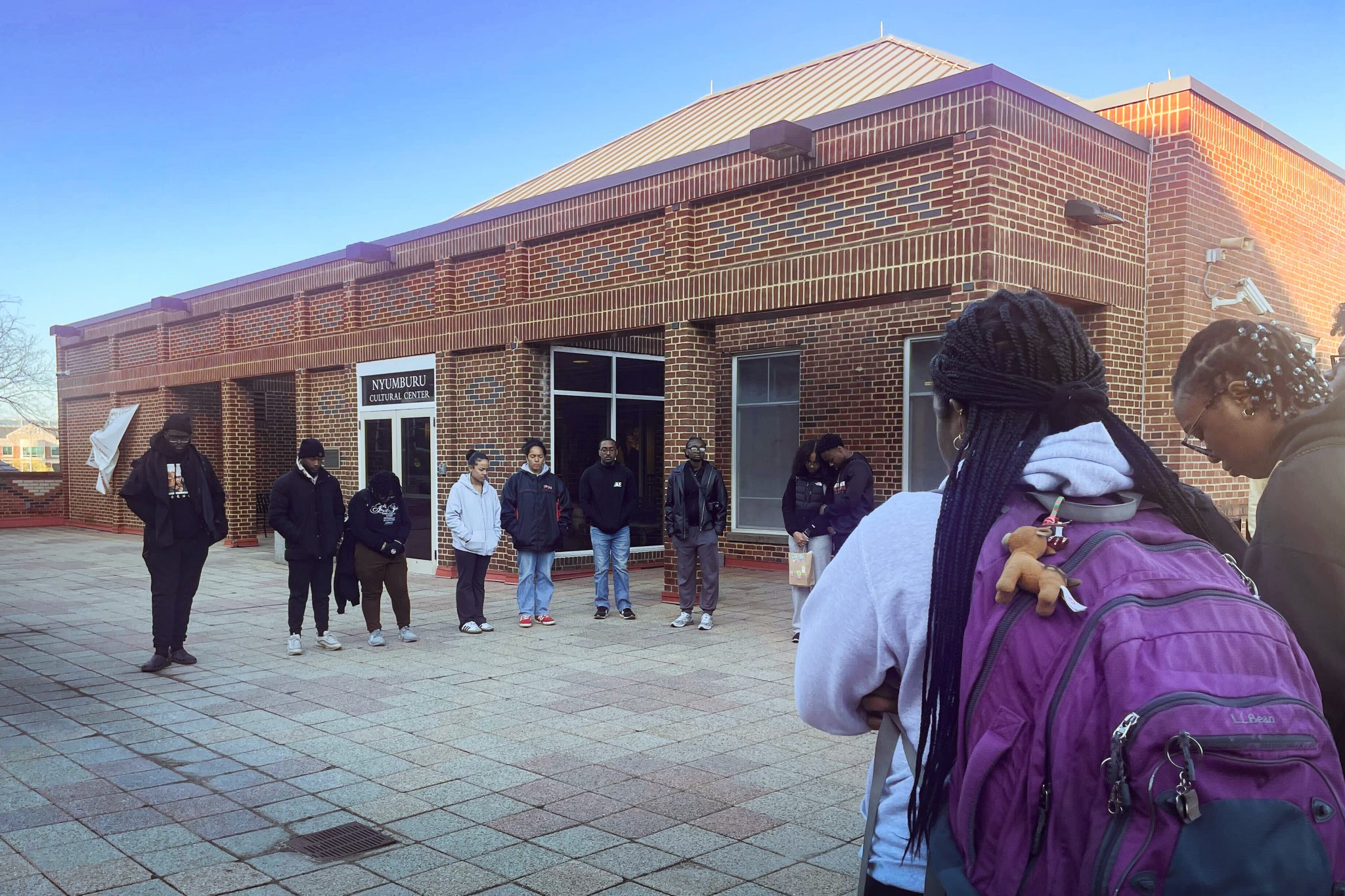Content warning: This article contains explicit descriptions of police brutality and anti-Black violence and discusses police responses to behavioral health crises.
The University of Maryland’s Black Student Union hosted a vigil on the Nyumburu Cultural Center patio Monday to honor the life of Ryan Gainer, a 15-year-old boy with autism who California police shot and killed on March 9.
San Bernardino County deputies responded to Gainer’s home after Gainer hit his sister and broke glass, according to the Los Angeles Times. After Gainer “seemed to be calming down,” Gainer’s cousin told police that the family no longer needed their assistance, the Los Angeles Times reported. Gainer was then shot by two deputies after he approached the door with a large gardening tool, the Los Angeles Times reported.
Gainer’s family filed a wrongful death claim against San Bernardino County that indicates they plan to sue the county for assault, battery, false imprisonment, negligence and intentionally inflicting emotional distress, the Los Angeles Times reported last Thursday.
“[Gainer] is just another person added to the list of Black men and women who have been wrongfully shot and killed by the police,” junior government and politics major Mason Minus said. “It is important for us as a community to come together and to recognize what’s going on.”
This university’s BSU organized Monday’s vigil due to the lack of cultural gathering on campus in response to police brutality, according to Minus, the organization’s president.
About 30 attendees stood side-by-side and held candles while engaging in conversations about how to raise awareness about police brutality. Students then reflected on Gainer’s death with 10 minutes of silence.
“Honoring Ryan Gainer was so important because he is another person that looks like me, that looks like everybody in the Black Student Union,” Minus said. “It’s very scary and it’s wrong.”
Gainer’s death has sparked a national conversation about how policing institutions treat those with disabilities, according to the Los Angeles Times.
Freshman journalism major ZyJon McCoy said the vigil aimed to raise concerns about how police should address those who have autism. Gainer most likely felt scared when police approached him, McCoy added.
“Some may just see him as a Black man charging with a weapon,” McCoy, president of the Black Alliance Network, which represents all Black organizations on the campus, said. “People don’t really see the disability. They don’t see that mental health crisis that he may be going through.”
Raising awareness is especially important in situations like these, McCoy said. McCoy hoped for more awareness among students on campus and stronger support from administration in addressing diversity, equity and inclusion.
Zyare Hill, a junior secondary education major, said she attended the event because it is important to highlight Gainer’s story and for the Black community to unite on campus.
“For us as individuals and as Black folk, all we can do is just keep trying to advocate and keep making sure that everybody knows and is hearing what’s happening to our people,” Hill said.
More training and programming should be implemented for police officers to attend to people with disabilities, Hill noted.
With the upcoming elections in November, some students at the vigil, including junior public policy major Kerra Dukes, emphasized voting’s importance in advocating for a better policing system.
“It’s important for us to keep advocating. Don’t allow these issues to ever simmer down,” Dukes said. “They should only be a constant fire and that’s the only way that we will be able to see change.”



